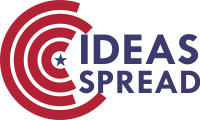Student’s Utilization and Assistance of AI Tools in Assessment Completion: Perceptions and Implications
Abstract
The study investigates the utilization and impact of AI Tools' usage by students for their assessment completion. It also explores students’ perceptions and examines the implications of using AI technology on students’ learning and development process. A total of 145 students majorly between 21-25 of age studying in Higher Education Institutions in the Sultanate of Oman participated in the survey. Data was collected employing non-probability convenience sampling. Results indicated that improving writing skills, critical thinking and analysis were the top 3 ranked skills which get enhanced in students by AI tools. As to fairness in AI tools' usage, the majority of the students agreed that these tools should only be used for generating ideas and structuring assessments. Results also revealed that 50% of the students were of the opinion that their institutions do not effectively regulate the use of AI. However, responses to questions on utilizing AI indicated that out of the students who had been penalized, 35% had a reduction in marks, 30% were asked to resubmit the assessment, 26% were given warnings, while 10% were given a ‘fail’ grade. Formulating standardized policies and regulations on AI usage, proper dissemination, and their implementation were the general recommendations obtained from the study.
Downloads
References
Blau, I., Goldberg, S., Friedman, A., & Eshet-Alkalai, Y. (2020). Violation of digital and analog academic integrity through the eyes of faculty members and students: Do institutional role and technology change ethical perspectives? https://doi.org/10.1007/s12528-020-09260-0
Birks, D., & Clare, J. (2023). Linking artificial intelligence facilitated academic misconduct to existing prevention frameworks. https://doi.org/10.1007/s40979-023-00142-3
Calatayud, I., Prendes, M. P., & Roig-Vila, R. (2021). Artificial Intelligence for Student Assessment: A Systematic Review. Link to the Research Paper. https://doi.org/10.3390/app11125467
Cardona, M. A., Rodríguez, R. J., & Ishmael, K. (2023). Artificial Intelligence and the Future of Teaching and Learning: Insights and Recommendations, USA: Office of Educational Technology. Retrieved from https://www2.ed.gov/documents/ai-report/ai-report.pdf
Christensen Hughes, Julia & Bertram Gallant, Tricia. (2016). Infusing Ethics and Ethical Decision Making into the Curriculum. https://doi.org/10.1007/978-981-287-098-8_12
Dakani, D., & Safa, N. (2023). Artificial intelligence in the L2 classroom: Implications and challenges on ethics and equity in higher education: A 21st-century Pandora's box. https://doi.org/10.1016/j.caeai.2023.100179
García-Martínez, I., Fernández-Batanero, J. M., Fernández-Cerero, J., & León, S. P. (2023). Analysing the Impact of Artificial Intelligence and Computational Sciences on Student Performance: Systematic Review and Meta-analysis. https://doi.org/10.7821/naer.2023.1.1240
Harkins, A. M., & Kubik, G. H. (2010). "Ethical" cheating in formal education. https://doi.org/10.1108/10748121011050487
Nassuora, Ayman. (2022). Applied Artificial Intelligence Applications in Higher Education Institutions. A Systematic Review, 19, 1168-1183.
Long, D., & Magerko, B. (2020). What Is AI Literacy? Competencies and Design Considerations. In Proceedings of the 2020 CHI Conference on Human Factors in Computing Systems (pp. 1-16). Association for Computing Machinery. https://doi.org/10.1145/3313831.3376727
Murdock, T. B., & Anderman, E. M. (2006). Motivational Perspectives on Student Cheating: Toward an Integrated Model of Academic Dishonesty. Educational Psychologist, 41(3), 129–145. https://doi.org/10.1207/s15326985ep4103_1
Seo, K., Tang, J., Roll, I., Fels, S., & Yoon, D. (2021). The impact of artificial intelligence on learner–instructor interaction in online learning. https://doi.org/10.1186/s41239-021-00292-9
Stone, A. (2022). Student Perceptions of Academic Integrity: A Qualitative Study of Understanding, Consequences, and Impact. https://doi.org/10.1007/s10805-022-09461-5
Touretzky, David & Gardner-McCune, Christina & Martin, Fred & Seehorn, Deborah. (2019). Envisioning AI for K-12: What Should Every Child Know about AI?. Proceedings of the AAAI Conference on Artificial Intelligence, 33, 9795-9799. https://doi.org/10.1609/aaai.v33i01.33019795
University of Melbourne. (2023). Plagiarism, Collusion an other Example of Misconducte, Retrieved from https://academicintegrity.unimelb.edu.au/plagiarism-and-collusion
University of Melbourne. (2023). Plagiarism and Collusion: Artificial Intelligence Tools and Technologies. Retrieved from https://academicintegrity.unimelb.edu.au/plagiarism-and-collusion/artificial-intelligence- tools-and-technologies
Yeo, M. (2023). Academic integrity in the age of Artificial Intelligence (AI) authoring apps. https://doi.org/10.1002/tesj.716

This work is licensed under a Creative Commons Attribution 4.0 International License.
Copyright for this article is retained by the author(s), with first publication rights granted to the journal.
This is an open-access article distributed under the terms and conditions of the Creative Commons Attribution license (http://creativecommons.org/licenses/by/4.0/).









1.png)









1.png)











